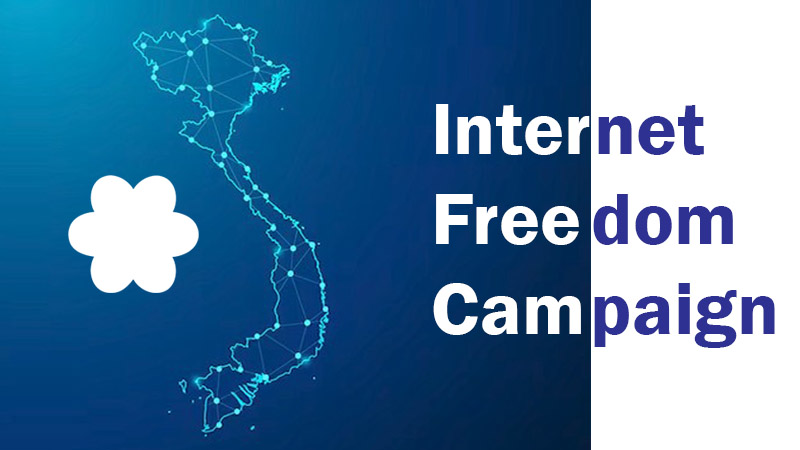October 4, 2010
HANOI—The Internet poses a challenge for authoritarian regimes around the world. But Vietnam’s leaders think they have figured out a new way to tame it—by launching their own, Communist-friendly answer to popular social-networking sites like Facebook.
It’s called go.vn, and state-owned Vietnam Multimedia Corp. launched a trial version on revolutionary hero Ho Chi Minh’s birthday, May 19. A full version is due to go up at the end of the year. Many of its features will be familiar to anybody versed in tagging, poking and defriending: People can post photos, link to friends and ping messages back and forth online.

With its social-networking site, Vietnam aims to attract youth, such as these students in a Hanoi Internet cafe
The catch is that users have to submit their full names and government-issued identity numbers before they can access the site. Security services monitor websites in Vietnam, whose authoritarian, one-party dictatorship treats dissidents ruthlessly.
The site marks a shift in tactics for Hanoi’s Politburo members, who have more typically shut down parts of the Web that rubbed them the wrong way. Over the past year, authorities have jailed dissident bloggers and tried blocking Facebook Inc.’s flagship site to stop subversive thoughts from spreading online.
Blogging recently on the site, Vietnam’s Minister for Information and Communications, Le Doan Hop, described it as a “trustworthy” alternative to foreign sites. “We’re ready for clean competition,” he wrote, exhorting Vietnam’s teenagers to visit go.vn in search of “culture, values and benefits.”
But early articles on the lives of revolutionary hero Ho Chi Minh and a brace of famous generals didn’t set the Internet ablaze. To keep the site from going the way of Vietnam’s old, Soviet-inspired five-year plans, its webmasters are attempting to spice things up.
Working from offices that prominently feature a bust of Uncle Ho, as Vietnam’s founding president is fondly known here, some 400 people with an average age of 26 iron out bugs in the site’s software and add content, says Phan Anh Tuan, vice-director at Vietnam Multimedia’s online unit.
The team has added online English tests and several state-approved videogames, including a violent multiplayer contest featuring a band of militants bent on stopping the spread of global capitalism. The stream of news on the home page recently included an item on local beauty queens, news of a South Carolina fisherman who caught a fish that had human-like teeth, and word that British intelligence services once experimented with semen as an invisible ink.
Mr. Hop, the information minister, predicted go.vn will sign up more than 40 million people— about half the country’s 85 million people—by 2015.
But gaining the approval of Vietnam’s young and increasingly tech-savvy population won’t be easy. Entire streets in Hanoi are packed with tiny stores where technicians armed with soldering irons and toothpicks break open Apple Inc.’s iPhones and other devices to let their owners use any phone network they like. Statistics from Google Inc. show that more searches containing the world “crack”—a term closely associated with hacking into protected software—originated in Vietnam than in any other country.
Some Vietnamese have figured out how to skirt the Facebook ban by using proxy servers or tinkering with their computer settings. Others have launched online campaigns to boycott local Web sites such as go.vn despite its ongoing makeover. “Make ’go’ go away,” one person wrote in an online message.
Many Vietnamese shrug when queried about go.vn. “I didn’t even know it existed,” says Pham Thanh Cong, a fourth-year physics student at Hanoi Polytechnic as he waits his turn to play an online shoot-’em-up game at a street-side Internet café.
It is users like Mr. Cong that go.vn wants to woo. Vietnam Multimedia’s Mr. Tuan says he hopes the site will gain a mass following among the country’s hordes of videogame enthusiasts by offering cheap, easy access to some of their favorite games. “This is a solid base for us,” says Mr. Tuan, who is himself 33 years old.
Vietnam’s bid to create a government-friendly Web portal points to its discomfort with the speed at which the Internet is outflanking heavily censored media like television and newspapers here. Vietnam recorded 26 million users in August—up 18% from the same month last year and one of the fastest growth rates in the developing world.
In March, security engineers at Google and computer security company McAfee Inc. reported they had discovered malicious software apparently used to spy on dissidents and disable their websites. Vietnam’s government has denied orchestrating any cyberattacks, and didn’t respond to requests for comment on the Facebook ban.
Facebook said at the time that “we would be very disappointed if users in any country were to have trouble accessing Facebook.”
Government officials have described Vietnam’s Facebook-killer as the country’s biggest online investment yet, although they won’t say exactly how much has been spent—or how many people have logged in to have a look.
Mr. Tuan is also hoping to get feedback from some of those users about how to improve the site. But word of what people really think might trickle through a little slower than he might wish. “There’s not been much response so far,” Mr. Tuan says.
—Nguyen Anh Thu in Hanoi contributed to this article.
http://online.wsj.com/article/SB10001424052748703305004575503561540612900.html





